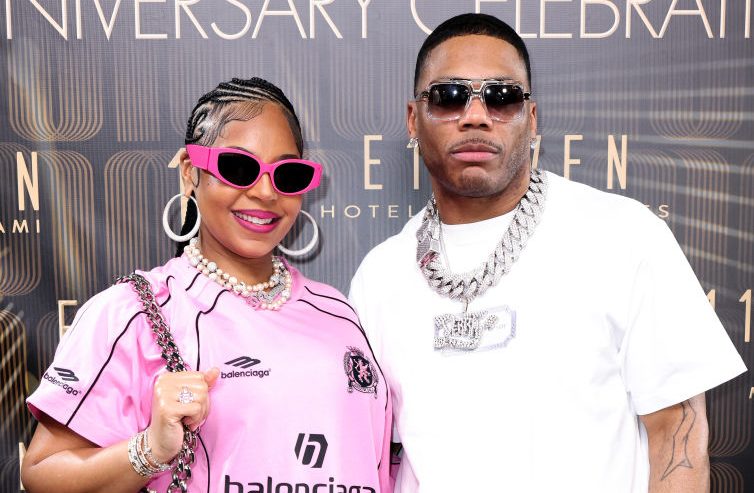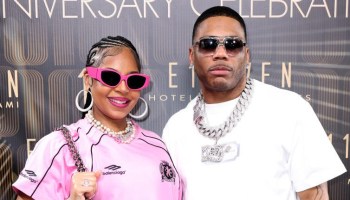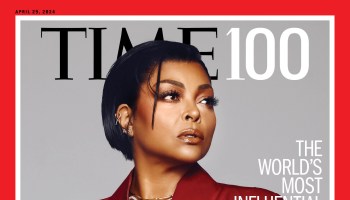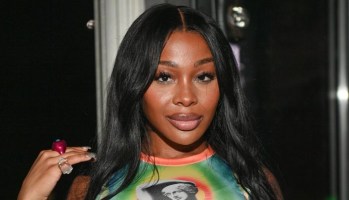I find it no small coincidence that Breast Cancer Awareness Month and Domestic Violence Awareness Month both fall in the month of October.
Not enough women are aware that both can kill you. Mercilessly. Quietly. Unexpectedly.
Just as “breast” softens the frightening, unforgiving sound of cancer to the masses, rendering the pink ribbons and “Save The Tatas” shirts marketable to said masses; domestic implies that the violence is tamed, expected – and to some extent, accepted – in the home. It suggests that it is anything other than nightmares steeped in male-dominated power and aggression, leaving its victims wrapped in isolation, guilt and shame.
Must Read: Lark Voorhies Denies Being Bipolar, Continues To Act Strange [VIDEO]
With African-American women experiencing domestic violence at a rate 35% higher than their Caucasian counterparts, this dynamic is sadly not uncommon in our communities. We live with it, whether in our own homes, or on the sidelines of someone else’s. We feel the unspeakable pain as blows, both psychological and physical, continue to rain down on our mothers, sisters, daughters. Us.
But is it ever forgivable? Does the sage wisdom, “If he hits you once, he’ll hit you again,” always apply? Can men ever learn from the pain they inflict on the women who love them?
And if any of the above are true, how does a woman continue in the relationship without veering down the slippery slope of forgiveness into the unhealthy, dangerous abyss of apologism, leaving impressionable young women believing that its’ a safe road to travel?
This is the theme tackled on Huffington Post by publicist, Sasha Brookner, in a scathing indictment of former video vixen turned women’s health advocate, Melyssa Ford.
Titled, “Don’t Poke the Sleeping Dragon: The Dangers of Male Apologism,”Brookner takes Ford to task for her appearance on “HuffPost Live, “ with Marc Lamont Hill, during which she finds various reasons to justify singer Chris Brown’s vicious attack on then – and allegedly now – girlfriend, Rihanna. According to Brookner, the “litany” of possibilities Ford rattles off for the attack are irresponsible and reckless, especially coming from a so-called “women’s health advocate”:
“She wasn’t on the show to be an advocate for women’s health. Instead, in the face of yet another seemingly uncomfortable panel, she began with a litany of obviously well-rehearsed factors that most likely lead to Rihanna receiving her renowned WWE smackdown. Her pretexts included: blame it on the alcohol (shout-out to Jamie Foxx), immaturity, love, impetuousness, you do what you see, provocateuress, he was having a bad day, wrong time of night and my ultimate favorite, Draco dormiens nunquam titillandus (“Don’t Poke a Sleeping Dragon”).
Follow HelloBeautiful On Twitter!
Seriously, the only thing missing was Rihanna infecting Chris with the Ebola virus. She conjectured Rihanna must have been all up in Brown’s face snapping her fingers, neck rollin’, gum smacking with her bamboo earrings swinging. And if that wasn’t enough “advocacy,” she assures viewers that the car attack was an isolated incident, because apparently she’s now a member of Scotland Yard.”
Brookner is bold in her belief that redemption is conditional. From Brown, to T.I. and Ford herself, she suggests that some acts are indicators of metastasized character weakness, rather than singular incidents – and violence, particularly men abusing women, is number one on that list. The Chris Brown-Rihanna situation heightens the stakes because it was played out in front of millions of impressionable people who may be going through similar situations, potentially causing young women to stay in volatile relationships with men who feel entitled to intimate forgiveness.
Intimate forgiveness.
Let’s be clear: For every action there is a subjectively equal and opposite reaction and when damaged people are in intimate relationships, it is difficult to discern what those actions and reactions may be. Domestic violence is a generational, contagious disease, infecting children in lasting psychological ways that manifest in their own adult relationships.
Knowing this, it is not a choice; rather, it is essential to understand the pathology of not only the abuser, whether it is physical or emotional, but the person being abused. The reciprocal acts of perpetuating and accepting violence are symptoms of a much broader diagnosis, and when a couple fully acknowledges that illness, and seeks professional help, forgiveness may be a possibility — but intimate forgiveness doesn’t have to be.
A woman doesn’t have to share her body again to forgive. She doesn’t have to share her heart again to say, “Apology accepted.” She doesn’t have to open her home again to express concern and sympathy. Sometimes, nothing says, “I love you,” more than accountability.
Therein lies the fine line between forgiveness and apologism. Abuse in any form is inexcusable. It is never the woman’s fault, as Ford suggests. There is nothing that a woman can do to make a man hit her, but both people involved in an unhealthy situation need to honestly examine how they got there, why they stay and when it’s time to leave.
As Brookner writes in her piece: “…there is a noteworthy distinction between forgiveness and fondling.”
If one does choose to intimately forgive, they must do so without apology, fully aware of the risks involved. Because that distinction can often be the difference between life and death.
More On Domestic Violence Below:
14 Signs Your Teen Is Dealing With Domestic Violence
Do You Consider A Slap Domestic Violence?
Listen To This Playlist To Feel Beautiful






















